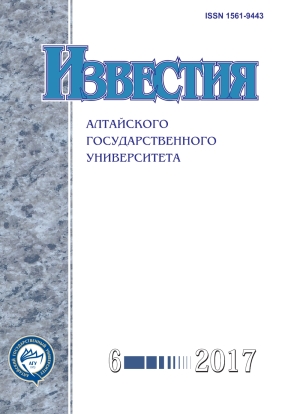Features of the Preparation Tactics of the State Prosecution on Criminal Cases on Murders
Abstract
Currently one of the promising directions of the development of Criminology is the development of forensic guidelines for public prosecutors and judges with a view to their application in court. This area is still little developed, as at present, in the forensic science there is a prevailing view on the limitation of the subject of Criminology to the preliminary investigation. The article presents the point of view of the leading Soviet and Russian Researches-Criminalists made at different times regarding the possibility and necessity to use forensics science in Court. The necessity is considered for state prosecutors to know the basics of criminalistic technique of the crimes investigation, in particular, the criminological characteristics of crimes and criminological characteristics of their investigation. The arguments are given to the point of view that considers the necessity and practical significance of the planning to support the public prosecutors in criminal homicide cases, the development of the algorithms to support public prosecution in these cases, depending on the situations of judicial investigation. The consideration is given to the need of interaction between the prosecutors and with the investigating authorities and inquiry in court in the process of support.
DOI 10.14258/izvasu(2017)6-17
Downloads
Metrics
References
Руководство для государственного обвинителя : учебное пособие / под ред. О.Н. Коршуновой. — СПб., 2011.
Кудрявцев В.Л. Проблемы установления истины через механизм доказывания в контексте деятельности государственного обвинителя в суде // Журнал российского права. — 2006. — №2.
Ароцкер Л.Е. Использование данных криминалистики в судебном разбирательстве уголовных дел. — М., 1964.
Кореневский Ю.В. Криминалистика для судебного следствия. — М., 2002.
Кисленко С.Л., Комиссаров В.И. Судебное следствие: состояние и перспективы. — М., 2003.
Бозров В.М., Кобяков В.М. Судебное следствие. — Екатеринбург, 1992.
Поддержание государственного обвинения в суде с участием присяжных заседателей : науч.-практ. пособие. — М., 2002.
Загорский Г.И. Судебное разбирательство по уголовному делу. — М., 1985.
Данилова Н.А. Нужна ли прокурору криминалистика // Вестник криминалистики. — 2014. — Вып. 2 (50).
Гармаев Ю.П., Кириллова А.А. Криминалистическая методика судебного разбирательства по уголовным делам об убийствах (ч. 1 ст. 105 УК РФ): теоретические основы и прикладные рекомендации : монография ; практ. пособие. — М., 2015.
Коршунова О.Н. Уголовно-процессуальные и криминалистические проблемы уголовного преследования : дисс. ... д-ра юрид. наук. — М., 2006.
David Carson Investigative Psychology and Law: Towards Collaboration by Focusing on Evidence and Inferential Reasoning // Journal of Investigative Psychology and Offender Profiling. — 2011. — № 8.
Лузгин И.М. Реконструкция в расследовании преступлений. — Волгоград, 1981.
Хайрусов Д.С., Щербич Л.А. Источники и методы криминалистического исследования преступной деятельности. — М., 2008.
Колдин А.В., Крестовников О.А. Источники криминалистической информации. — М., 2007.
Самыгин Л.Д. Криминалистическое прогнозирование // Перспективы развития криминалистики. — Екатеринбург, 1991.
Copyright (c) 2017 А.А. Корчагин, Л.Ю. Кирюшина

This work is licensed under a Creative Commons Attribution 4.0 International License.
Izvestiya of Altai State University is a golden publisher, as we allow self-archiving, but most importantly we are fully transparent about your rights.
Authors may present and discuss their findings ahead of publication: at biological or scientific conferences, on preprint servers, in public databases, and in blogs, wikis, tweets, and other informal communication channels.
Izvestiya of Altai State University allows authors to deposit manuscripts (currently under review or those for intended submission to Izvestiya of Altai State University) in non-commercial, pre-print servers such as ArXiv.
Authors who publish with this journal agree to the following terms:
- Authors retain copyright and grant the journal right of first publication with the work simultaneously licensed under a Creative Commons Attribution License (CC BY 4.0) that allows others to share the work with an acknowledgement of the work's authorship and initial publication in this journal.
- Authors are able to enter into separate, additional contractual arrangements for the non-exclusive distribution of the journal's published version of the work (e.g., post it to an institutional repository or publish it in a book), with an acknowledgement of its initial publication in this journal.
- Authors are permitted and encouraged to post their work online (e.g., in institutional repositories or on their website) prior to and during the submission process, as it can lead to productive exchanges, as well as earlier and greater citation of published work (See The Effect of Open Access).








